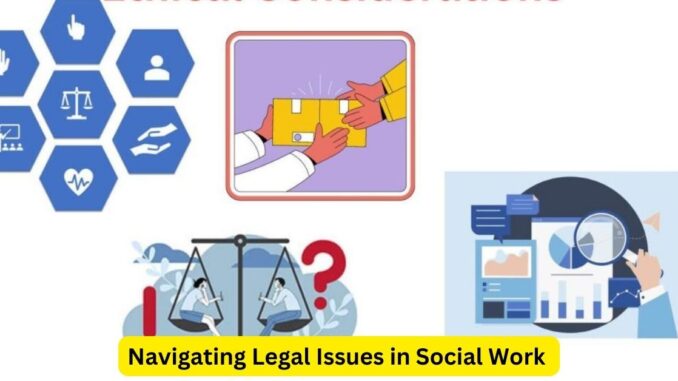
Social work is a noble profession that involves helping individuals and communities address various challenges, from mental health issues to poverty and substance abuse. While the primary focus of social work is to provide support and facilitate positive change, it is essential for social workers to be well-versed in legal matters that can affect their practice. This article explores some of the critical legal issues in social work and emphasizes the importance of legal knowledge in this field.
-
Confidentiality and Privacy
One of the most fundamental legal considerations in social work is confidentiality. Social workers are entrusted with sensitive information about their clients, and it is their legal and ethical duty to protect this information. Breaching confidentiality can have severe consequences, not only for the social worker but also for the client. Understanding the legal boundaries of confidentiality and when exceptions apply, such as when there is a risk of harm to the client or others, is essential to ensure compliance with the law.
-
Informed Consent
Informed consent is another crucial legal aspect of social work practice. Social workers must ensure that clients fully understand the nature and purpose of any interventions or services offered and the potential risks and benefits. Without informed consent, any action taken by a social worker could be deemed unethical and potentially illegal. Proper documentation of consent is essential to protect both the client and the social worker.
-
Mandatory Reporting
Social workers often work with vulnerable populations, including children and the elderly. In many jurisdictions, social workers are mandatory reporters, meaning they are legally obligated to report suspected cases of abuse, neglect, or endangerment. Understanding the reporting requirements and procedures is vital to fulfilling this ethical and legal responsibility and ensuring the safety and well-being of those at risk.
-
Licensing and Credentialing
Social workers must be licensed and adhere to the regulatory requirements of their jurisdiction. Failure to obtain and maintain the necessary licensure can result in legal consequences, including fines or the suspension of one’s ability to practice. Staying informed about the licensure process and renewal requirements is essential to avoid legal issues in social work.
-
Boundary Violations
Maintaining professional boundaries is a cornerstone of ethical social work practice. Engaging in dual relationships or any behavior that blurs the lines between personal and professional interactions can lead to ethical and legal dilemmas. Social workers must be vigilant in recognizing and preventing boundary violations to protect themselves and their clients.
-
Liability and Malpractice
Social workers can face legal liability if their actions or decisions harm a client or result in a breach of professional standards. Malpractice claims can be financially and professionally devastating. Social workers should consider obtaining professional liability insurance to mitigate the financial risks associated with potential legal issues.
Conclusion
Navigating the legal landscape in social work is a crucial responsibility that cannot be underestimated. Social workers must be knowledgeable about the laws and regulations governing their practice to protect their clients’ rights and well-being while safeguarding their own professional standing. The ethical and legal obligations of social workers are intertwined, and upholding them is essential to maintain the trust and integrity of the profession. Staying informed about legal issues in social work is not only a professional obligation but also a moral imperative to provide the best possible care to those in need.
Leave a Reply